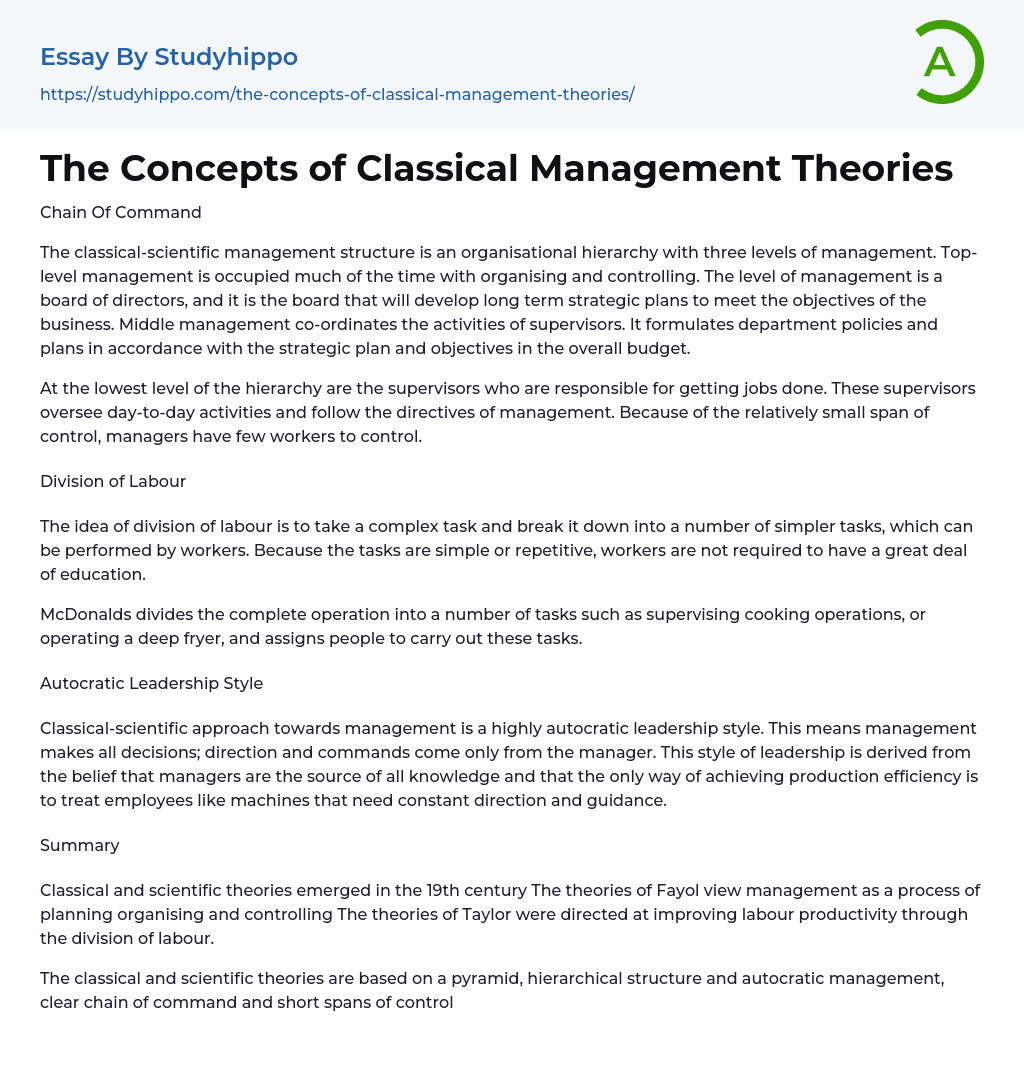

The Concepts of Classical Management Theories Essay Example
Chain Of Command
The classical-scientific management structure is organized into three levels of management, each with its own emphasis. Top-level management focuses mainly on organization and control.
The board of directors sits at the highest level of management. They are responsible for developing long-term strategic plans to accomplish business goals. Middle management supervises and establishes department policies and plans that align with the strategic plan and budget. Supervisors, who hold the lowest position in the hierarchy, are accountable for ensuring task completion.
Supervisors are responsible for overseeing daily operations and following management's instructions. Due to a smaller workforce, managers have a limited span of control.
Division of Labour
The division of labour involves breaking down complex tasks into simpler ones that can be performed by workers. These tasks do not require extensive education as they are often simple or repetitive.
I
...n McDonalds, the complete operation is divided into various tasks such as supervising cooking operations and operating a deep fryer. People are assigned to carry out these tasks.
Autocratic Leadership Style
The classical-scientific approach to management is characterized by a highly autocratic leadership style. This means that all decisions, direction, and commands come solely from the manager. This style of leadership is based on the belief that managers possess all knowledge and that treating employees like machines who require constant direction and guidance is the key to achieving production efficiency.
Summary
The classical and scientific theories emerged in the 19th century. Fayol's theories perceive management as a process involving planning, organizing, and controlling. Taylor's theories aimed at improving labor productivity through the division of labor. Both theories are based on a hierarchical structure, autocratic management, a clear chain of command, and short
spans of control.
- Being A Leader essays
- Servant Leadership essays
- Leadership Experience essays
- Leadership Qualities essays
- Animals essays
- Charles Darwin essays
- Agriculture essays
- Archaeology essays
- Moon essays
- Space Exploration essays
- Sun essays
- Universe essays
- Birds essays
- Horse essays
- Bear essays
- Butterfly essays
- Cat essays
- Dolphin essays
- Monkey essays
- Tiger essays
- Whale essays
- Lion essays
- Elephant essays
- Mythology essays
- Time Travel essays
- Discovery essays
- Thomas Edison essays
- Linguistics essays
- Journal essays
- Chemistry essays
- Biology essays
- Physics essays
- Seismology essays
- Reaction Rate essays
- Roman Numerals essays
- Scientific Method essays
- Mineralogy essays
- Plate Tectonics essays
- Logic essays
- Genetics essays
- Albert einstein essays
- Stars essays
- Venus essays
- Mars essays
- Evolution essays
- Human Evolution essays
- Noam Chomsky essays
- Methodology essays
- Eli Whitney essays
- Fish essays



